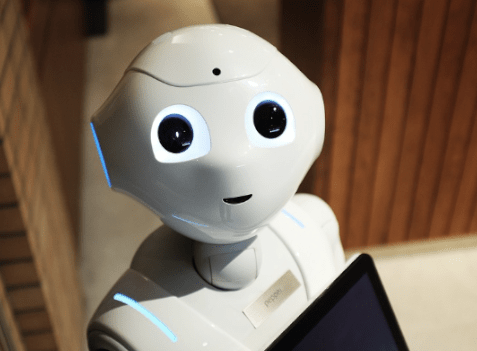In this article, we look at how generative AI could change work and jobs going forwards, plus how it could help businesses adopt new work trends such as a 4-day week.

The Rise Of Artificial Intelligence (AI) – A Timeline
AI has been many decades in the making. For example, the field of AI was established with a summer workshop at Dartmouth College in 1956, the first AI program, called “The General Problem Solver,” was developed in 1959, and the concept of “machine learning” was introduced in 1966 by (Arthur Samuel). That said, it wasn’t really until 1980s that the field of neural networks was established (machine learning inspired by the human brain) and, of course, with the rise of the internet in the 90s that AI techniques actually started to be used by search engines, leading to better helping users find information and products online.
Some of the most notable developments of AI (up until the more recent advent of the introduction of ‘generative AI’ heralded by the arrival of OpenAI’s ChatGPT) include:
2011
IBM’s Watson defeats human champions on the quiz show Jeopardy! using natural language processing and machine learning.
2014
Google’s DeepMind creates an AI system that can play Atari video games at a superhuman level.
2015
Amazon introduces the AI-powered voice assistant Alexa, which can perform tasks and answer questions using natural language input.
2016
Google’s AlphaGo defeats the world champion in the game of Go, which was previously considered too complex for computers to play at a high level.
2017
The first self-driving cars become available to the public, using AI to navigate and make decisions on the road.
2020
The COVID-19 pandemic leads to increased adoption of AI in healthcare, including the usage of machine learning to analyse medical images and predict the spread of the virus.
How Are Businesses Already Using AI?
Businesses are already using AI as part of their work in a variety of ways, including:
– Customer service.
Chatbots and virtual assistants can provide customers with quick and efficient service, handling routine tasks and answering common questions.
– Marketing.
AI can analyse data to identify patterns and preferences among customers, allowing businesses to create more targeted and personalized marketing campaigns.
– Operations.
AI is already being used to optimise supply chain management, inventory control and production processes, leading to cost savings and increased efficiency.
– Fraud detection.
AI can analyse data to identify potential instances of fraud or financial misconduct, helping businesses prevent losses and maintain compliance.
– Predictive analytics.
AI can be used to make predictions about future trends or events, such as sales forecasts or risk assessments, allowing businesses to make better-informed decisions.
– Overall, AI has already become a valuable tool for businesses across a wide range of industries, offering the potential for increased efficiency, cost savings, and competitive advantage.
Generative AI: A Game-Changer For Businesses
Although AI has been gradually introduced into many aspects of our lives and work in recent years, the biggest and most notable splash has come from the introduction of generative, conversational AI Large Language Model (LLM) chatbots like ChatGPT.
With ChatGPT’s GPT-3.5 architecture due to upgraded with new image features soon with GPT-4, with ChatGPT soon to have a web browsing plugin, plus with the integration of the ‘Copilot’ chatbot with Microsoft 365 and Google’s ‘Bard’ conversational chatbot on the way, generative AI is about to play an even bigger role in our lives and work.
How Important Will Generative AI Be To Businesses?
A recent Salesforce survey of 500 senior IT business leaders gives an idea of the perceived value of generative AI to businesses going forward. The survey showed that the majority (67%) of business leaders are now prioritising generative AI for their business within the next 18 months, with one-third (33%) naming it as a top priority.
How Might Generative AI Affect Jobs In The Future?
With businesses giving (and planning to give) greater priority to generative AI, this has the potential to create a wide range of new jobs in the future, thereby changing the jobs market. Some possible examples of jobs that generative AI may create include:
– AI trainers.
These individuals would be responsible for training the AI algorithms to generate specific outputs that meet certain criteria, such as realistic images or natural-sounding speech.
– AI data specialists.
These individuals would be responsible for collecting and analysing data that is used to train generative AI models. They would also be responsible for ensuring that the data is high quality and diverse enough to produce accurate and unbiased results.
– AI art curators.
As generative AI continues to advance in the realm of art and creative expression, there will likely be a need for individuals who can curate and showcase AI-generated artwork in galleries and museums.
– AI content creators.
As AI-generated content becomes more common, there will be a need for individuals who can write scripts or create storyboards that guide the generative AI algorithms towards specific outcomes. This is already a role that many existing content creators are having to adapt to.
– AI ethicists.
As AI continues to advance, there will be a growing need for individuals who can assess and address the ethical implications of generative AI. They would be responsible for ensuring that the AI algorithms are transparent, fair and unbiased.
– AI translators.
As generative AI algorithms become more advanced, there may be a need for individuals who can translate the output of one algorithm into a format that can be understood by another algorithm. Alternatively, this may be done by AI itself.
– AI analysts.
These individuals would be responsible for analysing the output of generative AI algorithms to determine their effectiveness and identify areas for improvement.
Overall, the possibilities for new jobs in generative AI are vast and varied and will likely continue to expand and change as the technology continues to evolve. It is likely too that as generative AI creates new jobs, as it improves its capabilities, it may swallow up those new jobs too!
The 4 Day Week And AI
It has long been predicted that greater automation and technological advances will lead to shorter working weeks. For example, in the 1930s, economist John Maynard Keynes predicted that technological advancements would lead to a 15-hour work week.
With this in mind, the results of the world’s largest four-day working week pilot (Autonomy for 4 Day Week Global) were recently published. The study, which took place in the UK from June to December 2022, involved 61 companies in diverse sectors and sizes, and around 2,900 workers. The results were overwhelmingly positive with 56 of the 61 companies who took part continuing with the four-day week (92%), and 18 confirming the policy is a permanent change. The ‘Before and after’ data showed that 39% of employees were less stressed, and 71% had reduced levels of burnout at the end of the trial. Also, measures of work-life balance were found to have improved across the trial period.
How Could Generative AI Contribute To Making A 4-Day Week Achievable For Businesses?
The concept of a 4-day workweek has gained momentum in recent years, with businesses exploring ways to improve work-life balance and productivity.
Generative AI is an emerging technology with the potential to transform various industries and could play a key role in making the 4-day workweek a reality.
By automating repetitive tasks such as data entry and administrative work, generative AI can free up employees’ time to focus on more complex and strategic work. This could increase productivity and efficiency, potentially allowing for a shorter workweek.
Generative AI can also analyse vast amounts of data and provide insights to inform decision-making, enabling businesses to make more informed decisions in less time. Additionally, generative AI can be used to develop chatbots and other automated customer service tools, providing 24/7 customer support without requiring employees to work longer hours.
Also, by providing tools for virtual collaboration, project management, and communication, generative AI can help businesses to create more flexible work environments that can accommodate a 4-day workweek.
The adoption of generative AI, therefore, has the potential to revolutionise the way businesses operate and create a more balanced and productive work culture.
It Will Take Work & Planning Plus Will Require Cultural Change
Overall, by leveraging the power of generative AI, businesses can become more efficient and productive, potentially allowing for a shorter workweek without sacrificing performance or profitability. However, it’s important to note that the adoption of generative AI also requires careful planning, training, management, and cultural change to ensure that it is implemented effectively and ethically.
What Does This Mean For Your Business?
The increased productivity, time and cost savings that generative AI is already delivering to businesses are a taster of the potential going forward as the technology improves. It’s clear that generative AI is changing existing jobs and will create new job opportunities and roles as businesses give the technology greater priority.
The benefits of generative AI also have the potential to help businesses adopt new work trends, such as the 4-day week and, just as predicted over the years, the automation created by technology could see people spending much less time engaged in ‘work’ and able to achieve a better work/life balance.
Businesses, however, will have to engage in more planning and manage cultural change to help them adapt to make the most of the opportunities that generative AI provides.
By Mike Knight
